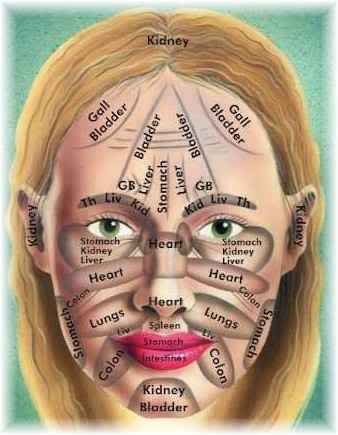 Copyright ©2010. The associated Press. Produced by NewsOK.com All rights reserved. This material may not be published, broadcast, rewritten, or redistributed.
Copyright ©2010. The associated Press. Produced by NewsOK.com All rights reserved. This material may not be published, broadcast, rewritten, or redistributed.
The moment his family had dreaded came with Jeff Kautz’s first wracking waves of pain.
His wife, Rolanda, rushed him to the hospital.
“They ran tests, and my kidneys had failed,” said Kautz, 41.
Doctors immediately surgically prepared the then-29-year-old Kautz for kidney dialysis to keep him alive until he could get his first kidney transplant.
The scene looked familiar to this Norman family — Kautz was suffering from the rare disease Alport Syndrome. during a touch football game decades before, his uncle got hit in the back and instantly went into kidney failure. The uncle, 59-year-old David Waggoner, of Yukon, has had two kidney transplants and undergone dialysis for the past 11 years as he waits for a third kidney and a liver transplant. Kautz’s grandmother’s kidney failure struck in the later years of life, in her late 60s.
Frequent bouts of high fever and blood in the urine when Kautz was about 5 years old quickly led to tests that showed he had the syndrome and his kidneys were deteriorating.
Early symptoms are bad news, said Dr. Brad Carter, nephrologist with Integris Baptist Medical Center.
“Usually if they have signs of it early in life, their kidneys will fail, usually at the age of 20 to 40 to 50. at that point, you have a couple of choices. It’s either a couple of different types of kidney dialysis or get a kidney transplant,” Carter said.
Alport Syndrome is an inherited disease that affects vision, hearing and kidney function, including chronic kidney disease. It’s so rare that it affects an estimated couple of dozen Oklahomans and 5,440 Americans. A disease is considered rare if it affects fewer than 200,000 people in the United States.
With his kidneys rapidly deteriorating, Kautz went on daily dialysis and began wearing a pager to let him know when a kidney was available for transplant.
Then in February 2001, the same week Rolanda discovered she was pregnant with their second child, the pager went off. Kautz called the hospital. though Rolanda already knew a kidney was available, she wanted to hear it from her husband.
“I got the call,” he said, simply.
“On that drive to the hospital, reality sets in that this is a gift from God; another life ended so he could live his,” Rolanda Kautz said.
Though doctors hope a transplanted kidney will last 10 or 15 years, Jeff Kautz’s new kidney lasted only a couple of years.
Carter said patients can get a third or even a fourth kidney, but it becomes harder to find a match. Kidneys are scarce, but most in demand. Almost 88,000 people are waiting for a kidney in the United States, including 336 people on the waiting list at Integris Baptist Medical Center. just more than 16,000 people nationwide are waiting for a liver transplant and more than 3,000 are waiting for a heart transplant.
“So I look at it as buying chunks of time with transplants and filling in the in-between times with dialysis,” Carter said. “He could live a normal life span but he’s only 40 and it’s going to be hard to buy enough time chunks to make him live until 80. but it’s still possible.”
Jeff Kautz has been on dialysis since the kidney failed in September 2003. The disease has left him wearing glasses and hearing aids, but he goes to work as an accountant every weekday. as soon as he gets home, he gets hooked up to the dialysis machine. with his condition deteriorating, his dialysis was recently bumped up from nine-hour treatments to 11 hours. He is near the top of the list for kidney donations.
Though Jeff Kautz is stoic about the effects of his disease, his wife admits that she cries as she worries about both the health and financial well-being of the family.
“I’m a feeler. I feel his pain,” she said.
While they’re all thankful 20-year-old son Zachary isn’t affected by the disease, she can’t help but struggle over the unknowns: what will happen to her husband and their 9-year-old daughter, Hannah?
Boys are affected more often than girls because about 80 percent of cases are caused by a mutation of the X chromosome and are transmitted from mother to son. The remaining 20 percent of cases affect boys and girls equally, according to the Alport Syndrome Foundation.
“We’ve gone down probably some of the darkest paths imaginable … but have come out with the strongest relationship,” said Rolanda Kautz, 39. “With the first transplant we had no insurance and we had to decide do we pay the electric bill or buy prescriptions? buy groceries or prescriptions?”
She credits God and said he’s worked through neighbors, friends, family and church friends who’ve helped them through, though they worry about the additional expenses ahead.
The Kautz family is trying to spread awareness of the disease to push for more research, as well as funding for families affected by the disease. at home, they’re piling their plates high with vegetables and pushing out processed foods to try to improve their health.
But blood has begun appearing in Hannah’s urine when she is ill.
Jeff Kautz and his wife hold on to hope that tests will show she doesn’t have the syndrome. Kautz said he expects to be cured.
“If not me, I know my daughter will,” he said.
News Photo Galleriesview all